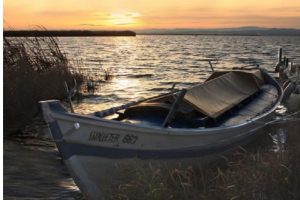AMASC会長からの呼びかけ「その2」
XVI AMASC WORLD CONGRESS-MÉRIDA 2018 THEME OF STUDY: THE CALLS OF THE 2016 GENERAL CHAPTER CARD 2. CROSSING NEW FRONTIERS WITH JESUS
“That day, when evening came, he said to his disciples, ‘Let us go over to the other side.’” (Mark 4:35)
This image of “going over to the other side” speaks of new things, new beginnings, but also risk. Jesus invited his disciples to travel beyond Galilee, or their known world. Together, they embarked on a journey to reach the other side of the Sea of Galilee, which was unknown territory.
For us, to embark on a journey and cross to “the other side” could mean to step out of our comfort zone and take a risk, or perhaps step outside our cultural milieu and acquaint ourselves with others; to learn new languages, to move in circles beyond those in which we feel secure and establish new relationships. As human beings, we need to cross the frontier of fear to risk, that of pessimism to hope, that of violence to peace.
Madeleine Sophie, and especially Philippine Duchesne, also crossed new frontiers. Two-hundred years ago, Philippine and her four companions set sail on the Rebecca to reach a new continent. Encouraged by this example, the 2016 General Chapter of the RSCJ saw that call in these terms:
|
To reach new frontiers: To go out, to “set sail” as a Society and go with others to new geographic and existential peripheries to accompany the life that is emerging there, to defend justice, peace, and the integrity of creation in response to all of those who are searching for meaning in their lives, those who have been wounded, displaced, and excluded because of poverty, violence, and environmental degradation. |
・What are some “peripheries” you could approach?
・Thinking about the people who form part of your daily life, can you identify
among them those who have been hurt, displaced, or excluded?
・Do you sense an invitation to “go over to the other side,” leaving behind certain
attitudes that might “anchor” you and prevent you from “embarking”?








